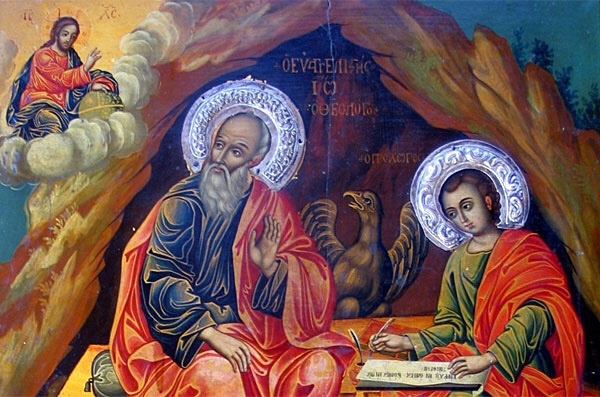 One thing that differentiates the Fourth Gospel from the other three is that in Matthew, Mark and Luke, Christ speaks in short, pithy sayings such as “love your neighbor”, “turn the other cheek” and so on. He also speaks in parables such as the “Good Samaritan” and “the Prodigal Son”.
One thing that differentiates the Fourth Gospel from the other three is that in Matthew, Mark and Luke, Christ speaks in short, pithy sayings such as “love your neighbor”, “turn the other cheek” and so on. He also speaks in parables such as the “Good Samaritan” and “the Prodigal Son”.
But we see very little of this in St. John’s Gospel. In this Gospel Christ delivers long theological speeches. Because of this some critics say that St. John’s Gospel is not historically accurate. However, there are some things to consider. In the first three (synoptic) Gospels, Christ is preaching for the most part, in Galilee. Galilee was ethnically mixed with Jews, Greeks and others living together. The overall level of education was somewhat lower in Galilee. Christ frequently spoke to simple, uneducated people. For this reason, Christ did not give long, theological discourses, but he uses simple language, capable of being understood by the uneducated but with profound meaning for all. Much of St. John’s Gospel is set in Judea, often in Jerusalem. Judea was more solidly Jewish with many highly educated Jewish leaders. Also, in much of the Fourth Gospel Christ is giving directions to the apostles who were able to understand Jesus in a more sophisticated way.
But there is something else to take into consideration. By the time St. John wrote his Gospel he had spent close to sixty years meditating on Christ’s words and deeds, preaching these words and deeds before various audiences. And so Christ’s words became intermixed with St. John’s words. Sometimes we don’t know where Christ’s words end and St. John’s words begin. This should not surprise us. For example, priests preach about the Gospel frequently. They quote Christ’s words and sometimes paraphrase or summarize Christ’s words in various contexts. Hopefully priests are not contradicting or ignoring Christ’s words, but rather preaching them in various situations.
There is yet one other thing we have to take into account. St. John may not have literally put pen to paper in the writing of this Gospel. It is very possible that St. John’s words were written by one or many of his disciples. In many icons of St. John, we see him speaking and his disciple Prochorus writing things down. Modern scholars propose that there was a school of St. John’s disciples for putting his words on paper.
We are tempted to think that many of Christ’s words were distorted through this process. But, we are thinking in a modern manner. Scholars have shown that in our modern situations, with words available in print or through electronic media, our ability to memorize things has slowed down. However, in pre-literate cultures where much transmission of knowledge was verbal, memory as more fully developed. Studies have shown that story tellers in non-literate cultures can memorize and repeat very long stories, histories, plays and so on. Furthermore, in Judaism in the early centuries, disciples of a rabbi were required to memorize and accurately repeat the rabbi’s teachings. Jesus’ disciples, although they did not have much formal education, probably could accurately repeat long narratives of Christ’s words and deeds.
Finally, for Orthodox we do not need to be overly concerned about detailed questions about authority or dating of the Bible. The Bible is the book of the Church, which witnesses to the truth of the Bible. Details may vary, but the Bible is God’s word for humanity.
Fr. John
